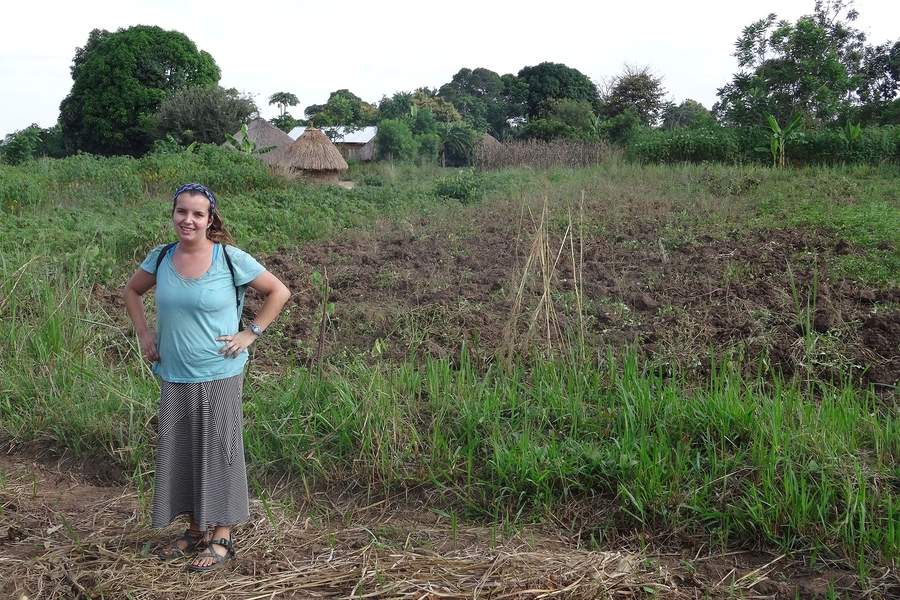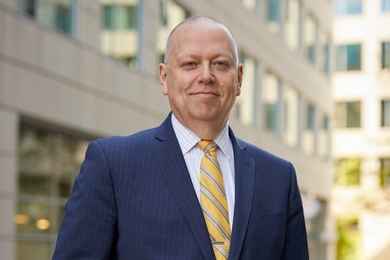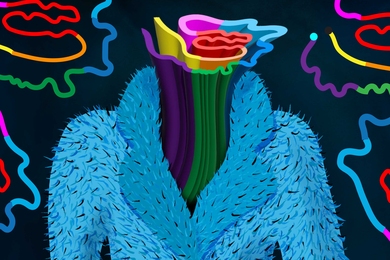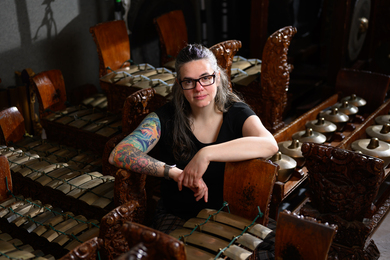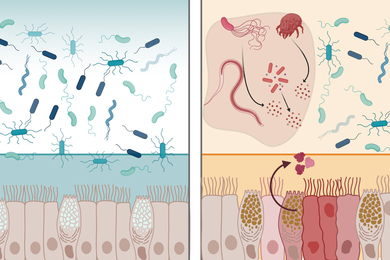Julia Heyman, an MIT senior in the Department of Civil and Environmental Engineering, has been selected as the Carroll L. Wilson Award winner for 2017. The competitive award is given to one graduating MIT senior to support a year's worth of self-directed work following graduation, which will enable the student to develop an independent idea into a future professional or educational endeavor. Heyman will receive an award of $25,000 to travel to Indonesia after graduation to pursue a 12-month project studying the implementation of wheelchair sensors.
Heyman has a strong interest in pursuing research pertinent to global development and health issues. Her project proposes to utilize sensors attached to wheelchairs to acquire usage and performance data that will help developers of these devices better understand the needs of low-income users in the developing world. These data, complemented by interviews, will provide information about the quality durability, and health outcomes associated with the chairs. Heyman will collaborate with United Cerebral Palsy Wheels for Humanity, Sensen, and D-Lab/CITE at MIT in addition to community partners in Indonesia.
“Julia’s project involves the intersection of science and technology,” says Steve Carhart, current chair of the Carroll L. Wilson (CLW) Award Committee. “She carefully included protocols to ensure that the project includes meaningful involvement of the communities to be benefitted, in this case in Indonesia.”
Heyman received the award after interviewing with the 15 members of the CLW Award Committee, which is comprised of former colleagues of Carroll L. Wilson and past winners of the CLW Award. “The award committee was impressed with several things in choosing, unanimously, to select Julia for this year’s award,” says committee member Bob Backus. “First, her enthusiasm and passion were as impressive as her carefully thought out approach for how to get this project done. She is interested in pursuing how she can use engineering skills to help improve public health. Second, she had a relevant background in an analogous area; namely, a prior project in Uganda using sensors to improve design and utilization of cook stoves. Additionally, Julia has been involved with GlobeMed at MIT, and had the opportunity to spend a summer in Togo, working to implement a mobile health application and computer literacy trainings for clinic staff at an HIV clinic. All of these experiences made her an outstanding candidate and gave us confidence in her vision and capabilities to successfully carry out her proposed CLW Award-sponsored research in Indonesia.”
Heyman is grateful for the financial support provided by the CLW Award and is looking forward to beginning her research in Indonesia next summer. “This fellowship allows me to be involved in a multi-disciplinary project to pursue my interests in the technical, engineering and social aspects of public health and international development,” she says. “Through the Carroll L. Wilson Award, I hope to forge improved policies and understanding around wheelchair users’ preferences and needs. Personally, I am excited at the opportunity to expand some of the work I performed as an undergrad at MIT in order to stay involved with rigorous and thorough research that has a social impact. I will be able to expand my leadership and critical thinking skills, while also gaining a better understanding of what type of higher education degree I believe will allow me to continue making strides in the international development field.”
The Carroll L. Wilson Award is given each year to one or more MIT undergraduates, who propose a project consistent with the legacy of former MIT Professor Carroll L. Wilson '32. Throughout his career, Wilson sought solutions to global problems through the application of scientific, engineering, economic, and political analysis to programs of action. The underlying goal of his work was the improvement of relations among countries and the strengthening of their institutions and people. Wilson was a professor of management at the Sloan School and the first Mitsui Professor in Problems of Contemporary Technology at MIT. His career encompassed a number of academic, government, and industrial positions ranging from assistant to the president of MIT to first general manager of the Atomic Energy Commission.
Wilson was particularly interested in improving the lives of people living in the developing world. Among his many important initiatives was the Fellows in Africa Program, which during the 1960’s placed MBA graduates from the MIT Sloan School, and law graduates from the Harvard and Yale Law Schools, in governmental agencies throughout Africa to help African nations transition from colonial to independent rule. The CLW Award Committee, which reviews the applications and interviews the candidates, consists of alumni of the Fellows in Africa Program, Wilson’s daughter Rosemary, prior CLW Awardees, and other former students and colleagues of Wilson. The committee looks forward to receiving applications in October for next year's award from senior-level undergraduates interested in pursuing projects that match Wilson's interests and reflect his legacy. Interested students should contact Kim Benard in the Office of Distinguished Fellowships within the Office of Undergraduate Advising and Academic Programming.
